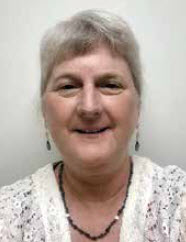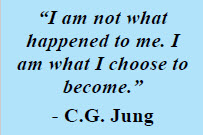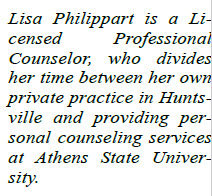 By: Lisa Philippart
By: Lisa Philippart
Trigger warning: This article contains sexual content that may cause emotional distress. Reader discretion is advised.
I was asked the question recently, “Do you believe that sexually abused children grow up to have abusive relationships?” The answer to this question is, of course, much more complex than a simple yes or no. People who were sexually abused in childhood often engage in abusive relationships as adults, yes. They might repeatedly find themselves in adult relationships where they are victimized physically, emotionally, or sexually. Some even become abusive themselves. It may be difficult to understand why someone who was sexually abused in childhood would “choose” to engage in an abusive relationship again. Let’s take a look at some of the reasons why sexually abused children grow up to have abusive relationships in adulthood.
If the connection between abuse and “love” is made early in life, the feelings of shame and anger (which naturally happen as a consequence of the abuse) can become mixed up with sexual feelings, leading to confusion in the person who experienced the abuse. The feelings might be interpreted as feelings of love and passion. Consequently, people who have been abused may not realize that other healthier ways of feeling love in relationships are possible. This forms the belief in the abused that what they are feeling is attraction or affection for the abuser, leading to feelings of intimacy associated with the abuse. When this is imprinted at an early age, and the abused later becomes involved in adult intimate relationships, they perceive the familiar feelings of shame and anger as love and passion.
 The sexually abused child as an adult may make an attempt to heal, taking the opposite, seemingly more powerful position by actually becoming the abuser. By engaging in a relationship with another abuser, they can try to relive the relationship (with the original abuser) in the hope that they can get it right this time. As you might expect, people who were abused as children may believe, on some deep level, that they are not “good enough” to deserve a genuinely loving relationship. They feel damaged and may have even been convinced by their abuser that they deserved the abuse. Strange as it may seem, people who were abused may counteract the feelings of inadequacy by believing they are better than others. They may have trouble respecting others as equals, making it hard to enter into a mutually loving, respectful relationship. By becoming an abuser, someone who has been abused can play the role of the more powerful person in the relationship in an attempt to overcome the powerlessness felt during the initial abuse.
The sexually abused child as an adult may make an attempt to heal, taking the opposite, seemingly more powerful position by actually becoming the abuser. By engaging in a relationship with another abuser, they can try to relive the relationship (with the original abuser) in the hope that they can get it right this time. As you might expect, people who were abused as children may believe, on some deep level, that they are not “good enough” to deserve a genuinely loving relationship. They feel damaged and may have even been convinced by their abuser that they deserved the abuse. Strange as it may seem, people who were abused may counteract the feelings of inadequacy by believing they are better than others. They may have trouble respecting others as equals, making it hard to enter into a mutually loving, respectful relationship. By becoming an abuser, someone who has been abused can play the role of the more powerful person in the relationship in an attempt to overcome the powerlessness felt during the initial abuse.
 People who have been abused generally carry a lot of anger about what happened to them, and abuse can be a way to express that anger. Even if they have pushed that anger out of their consciousness, it can emerge in subtle or not-so-subtle ways in both the intimate relationships and parenting styles. If abuse and hurt feels inevitable, those who have been abused may view sexual relationships as “predatory” and try to hurt before being hurt. Because abuse is so painful, some abused children and adults may cope by retreating into themselves through creating a fantasy world or dissociating. This may include idealizing the abuser, or abusing as a result of the overwhelming disappointment they feel when they can’t possibly live up to the fantasy. And lastly, when children are traumatized through sexual abuse, they may associate or confuse the intensity of the situation/person with pleasure. As a result, they may be attracted to abusive individuals and high-risk activities in order to feel that pleasure.
People who have been abused generally carry a lot of anger about what happened to them, and abuse can be a way to express that anger. Even if they have pushed that anger out of their consciousness, it can emerge in subtle or not-so-subtle ways in both the intimate relationships and parenting styles. If abuse and hurt feels inevitable, those who have been abused may view sexual relationships as “predatory” and try to hurt before being hurt. Because abuse is so painful, some abused children and adults may cope by retreating into themselves through creating a fantasy world or dissociating. This may include idealizing the abuser, or abusing as a result of the overwhelming disappointment they feel when they can’t possibly live up to the fantasy. And lastly, when children are traumatized through sexual abuse, they may associate or confuse the intensity of the situation/person with pleasure. As a result, they may be attracted to abusive individuals and high-risk activities in order to feel that pleasure.
If you are struggling with the trauma of childhood sexual abuse, please seek counseling. There are trained professionals who can help you to work through your pain.
By: Lisa Philippart
Licensed Professional Counselor









 June 20, 2025
June 20, 2025



